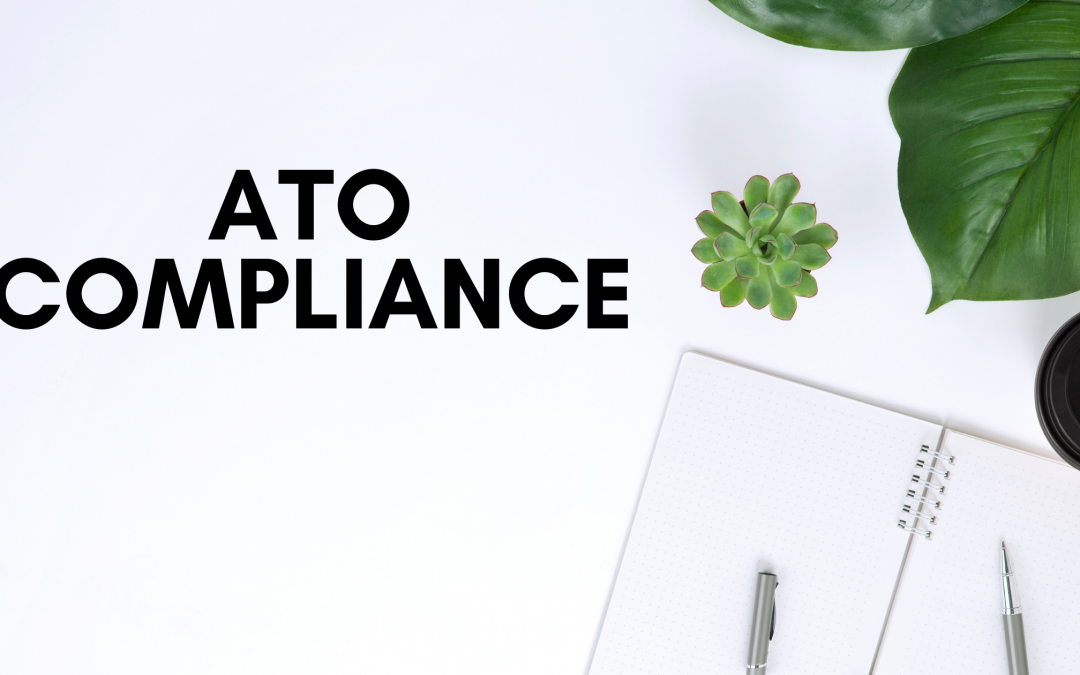Important Points to Consider to Keep Your Bookkeeping Meet ATO Compliance and the ATO Happy
We all feel the presence of rules, both written and unwritten. At times, they may feel oppressive, but they are necessary to maintain order.
For example, failing to follow the rules to keep the human body in tip-top condition through diet and exercise can result in illness, pain, and disease.
Rules are an essential aspect of life to ensure a stable environment that results in peace and order.
The same applies to running a business. If you don’t look after your business by following the Australian Taxation Office’s rules (ATO), you could find yourself in hot water.
The ATO has set expectations that they have set up expressly to ensure order and compliance. Meeting these obligations through compliance will protect you from penalties and fees and, in some cases, prosecution.
In this article, we are going to share some of the regulations that you need to keep in mind when running a small business in Australia.
Register Your Business Correctly
There are several options and required registrations that you need to take into account when registering your business. It’s essential to know which is the right one for you when you’re starting up.
Australia Business Number (ABN) Registration: Every entity conducting business in Australia will need to register for an ABN. Example of entities includes sole traders, partnerships, companies, trusts, etc.
Goods and Services Tax (GST) Registration:
If your current or expected turn over is $75,000 or more per financial year, you will need to register for GST and submit a Business Activity Statement (BAS). You can register for GST at any time you feel you will reach the turnover.
Pay As You Go (PAYG) Withholder Registration:
You will also need to register as a PAYG withholder if you employ staff, including owners or directors. Sole traders are not able to employ themselves but can employ others. This registration is to notify ATO of your intention to engage employees of any classifications, including casual employees, part-time employees, and full-time employees.
Superannuation Guarantee Contributions (SGC):
Employers have to pay their employees 10% of their ordinary time earnings into their superannuation fund of choice, at least every three months by a date specified by ATO. There are earnings and age thresholds for the SGC, for example:
● An employee who is over 18 years old is paid $450 or more before tax in a month or is under 18 years and works over 30 hours per week
● NOTE: Some awards and enterprise agreements will need to be consulted for additional terms and thresholds
Late lodgements and payments of the SGC can result in penalties, fees, and interest.
Business Activity Statement (BAS):
As mentioned in the section above regarding GST, if you have registered your entity for GST, you will need to lodge a BAS.
The BAS will help the entity report and pay the following liabilities:
● Goods and Services Tax (GST)
● Pay As You Go (PAYG) instalments
● PAYG withholding tax
The frequency for lodging BAS is as per the entity’s registration with ATO, which can either be monthly, quarterly or annually. ATO sets the deadlines for lodging the BAS.
Once the BAS is submitted, the ATO will notify you of the due date for payment. In some instances, you may be entitled to a refund, which the ATO will credit.
While there are penalties for late lodgements and payments, ATO understands that there may be exceptional circumstances causing this. If you’re facing difficulties and struggling to lodge or pay a BAS on time, you will need to contact ATO directly or through your BAS Agent.
Keep Your Receipts!
Record Keeping
Records are also known as source documents. Every entity is required to keep records of all transactions relating to their business. This includes payroll and superannuation payments, receipt books, customer invoices, supplier bills and point of sales receipts, contracts, agreements, leases, check butts etc. Records can be kept electronically and still meet ATO compliance.
You must keep these records for a minimum of five years. There are situations where they will need to be kept for an extended period, such as records for purchasing assets that will need to be kept for five years after disposing of the asset.
There can be legal and financial consequences if you don’t comply with the record-keeping requirements.
Being Audited by ATO
ATO Audits
Everyone dreads being audited, which is why your record-keeping is so vital.
When the ATO conducts an audit, they are taking an in-depth look at your records to verify the accuracy of financial accounting information and your systems’ integrity.
Audits can range from being quick examinations of source documents to a more comprehensive analysis of transactions. ATO will notify you in advance of an audit and expect cooperation so the process can be finalised as quickly as possible.
Some penalties, fees and interest may be payable to ATO, and some cases may lead to prosecution if the audit results in breaches of compliance.
In summary, not meeting ATO compliance can be costly and, in some cases, result in prosecution.
If you’re unsure about your ATO compliance, you can either contact the ATO to discuss it with them or seek professional advice to ensure that your systems and processes meet ATO’s rules and regulations.
If you require help with ensuring your entity is compliant, please email to book a time to discuss your concerns and processes.
For more information about ATO’s rules and regulations, please visit their website www.ato.gov.au.


